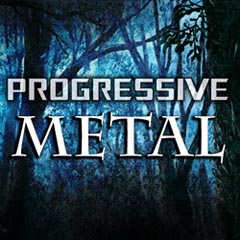Progressive metal
ON AIR - PROGRAMMING
Instrumental virtuosity in excess, a baroque musical complimented by idyllic keyboards from an unknown period. Structured sound traveling. Do yourself a favor and listen to today's progressive metal -- you won't regret it! Feel your spirit soar as you treat your ears to layers of melodic guitars echoing throughout space and time. Get lost in an up tempo beat, combined with masterful writing and sharp delivery. Allow dynamic guitar harmonies to carry you away as they sweep you away on a journey of everchanging rhythms, interwoven with heavier riffs that define this impressive genre. With modern production and unique elements, now is the time to enjoy progressive metal. Progressive metal, also known as prog or technical metal is a 1970s subgenre of heavy metal, characterized by the massive use of the electric guitar.
Why Progressive Metal is the Future of Music
Are you tired of listening to the same old pop songs on the radio? Do you crave something different, something with depth and complexity? Look no further than progressive metal. This genre has been steadily gaining popularity in recent years, and for good reason. With its intricate instrumentals, idiosyncratic sound, and powerful delivery, progressive metal is poised to take over the music scene. In this article, I'll take you through the ins and outs of this exciting genre and explain why you need to start listening to it today!
Progressive metal is often described as a fusion of heavy metal and progressive rock. It's characterized by intricate, complex rhythms, unconventional song structures, and a focus on musicianship and virtuosity. Unlike many other genres, where the emphasis is on catchy hooks and sing-along choruses, progressive metal is all about pushing boundaries and challenging the listener. This isn't your typical three-chord rock; it's a genre that demands your full attention and rewards careful listening.
One of the hallmarks of progressive metal is the use of unusual time signatures. While most rock songs stick to the standard 4/4 beat, progressive metal bands like Dream Theater, Opeth, and Tool are known for incorporating odd meters like 7/8, 9/8, or 11/8. This creates a sense of tension and anticipation that keeps the listener engaged and on their toes. The musicians in these bands are all incredibly skilled, able to switch between complex time signatures and blistering guitar solos with ease.
Another defining feature of progressive metal is the use of keyboards and other atmospheric elements. Unlike traditional heavy metal, which often relies on raw power and aggression, progressive metal employs a wider range of sounds and textures. Pianos, string sections, and electronic effects are all fair game, giving the music a cinematic quality that's both grand and intimate. It's not uncommon for a progressive metal song to shift from a delicate acoustic passage to a thunderous, chugging riff in the space of a few seconds.
Perhaps the most impressive aspect of progressive metal is the sheer technical proficiency of the musicians involved. These are some of the most skilled instrumentalists in the world, capable of playing at breakneck speeds while maintaining impeccable precision and clarity. Guitarists like John Petrucci and Michael Romeo are virtuosos who have mastered their craft to a degree that's almost superhuman. They're able to shred through solos that would leave most guitarists gasping for breath, all while maintaining a sense of musicality and emotion that's often missing from more technically-focused genres.
I hope this article has given you a sense of why progressive metal is such an exciting and vibrant genre. Whether you're a longtime metal fan or just someone looking for something new and different, I encourage you to give it a listen. You might be surprised at how much you enjoy the intricate rhythms, soaring melodies, and virtuosic instrumentals that define this unique style of music. So, put on your headphones, turn up the volume, and let yourself get lost in the intricate, ever-changing world of progressive metal. Trust me, your ears will thank you.
Why Progressive Metal is the Future of Music
Are you tired of listening to the same old pop songs on the radio? Do you crave something different, something with depth and complexity? Look no further than progressive metal. This genre has been steadily gaining popularity in recent years, and for good reason. With its intricate instrumentals, idiosyncratic sound, and powerful delivery, progressive metal is poised to take over the music scene. In this article, I'll take you through the ins and outs of this exciting genre and explain why you need to start listening to it today!
Progressive metal is often described as a fusion of heavy metal and progressive rock. It's characterized by intricate, complex rhythms, unconventional song structures, and a focus on musicianship and virtuosity. Unlike many other genres, where the emphasis is on catchy hooks and sing-along choruses, progressive metal is all about pushing boundaries and challenging the listener. This isn't your typical three-chord rock; it's a genre that demands your full attention and rewards careful listening.
One of the hallmarks of progressive metal is the use of unusual time signatures. While most rock songs stick to the standard 4/4 beat, progressive metal bands like Dream Theater, Opeth, and Tool are known for incorporating odd meters like 7/8, 9/8, or 11/8. This creates a sense of tension and anticipation that keeps the listener engaged and on their toes. The musicians in these bands are all incredibly skilled, able to switch between complex time signatures and blistering guitar solos with ease.
Another defining feature of progressive metal is the use of keyboards and other atmospheric elements. Unlike traditional heavy metal, which often relies on raw power and aggression, progressive metal employs a wider range of sounds and textures. Pianos, string sections, and electronic effects are all fair game, giving the music a cinematic quality that's both grand and intimate. It's not uncommon for a progressive metal song to shift from a delicate acoustic passage to a thunderous, chugging riff in the space of a few seconds.
Perhaps the most impressive aspect of progressive metal is the sheer technical proficiency of the musicians involved. These are some of the most skilled instrumentalists in the world, capable of playing at breakneck speeds while maintaining impeccable precision and clarity. Guitarists like John Petrucci and Michael Romeo are virtuosos who have mastered their craft to a degree that's almost superhuman. They're able to shred through solos that would leave most guitarists gasping for breath, all while maintaining a sense of musicality and emotion that's often missing from more technically-focused genres.
I hope this article has given you a sense of why progressive metal is such an exciting and vibrant genre. Whether you're a longtime metal fan or just someone looking for something new and different, I encourage you to give it a listen. You might be surprised at how much you enjoy the intricate rhythms, soaring melodies, and virtuosic instrumentals that define this unique style of music. So, put on your headphones, turn up the volume, and let yourself get lost in the intricate, ever-changing world of progressive metal. Trust me, your ears will thank you.
What are you thinking about?





